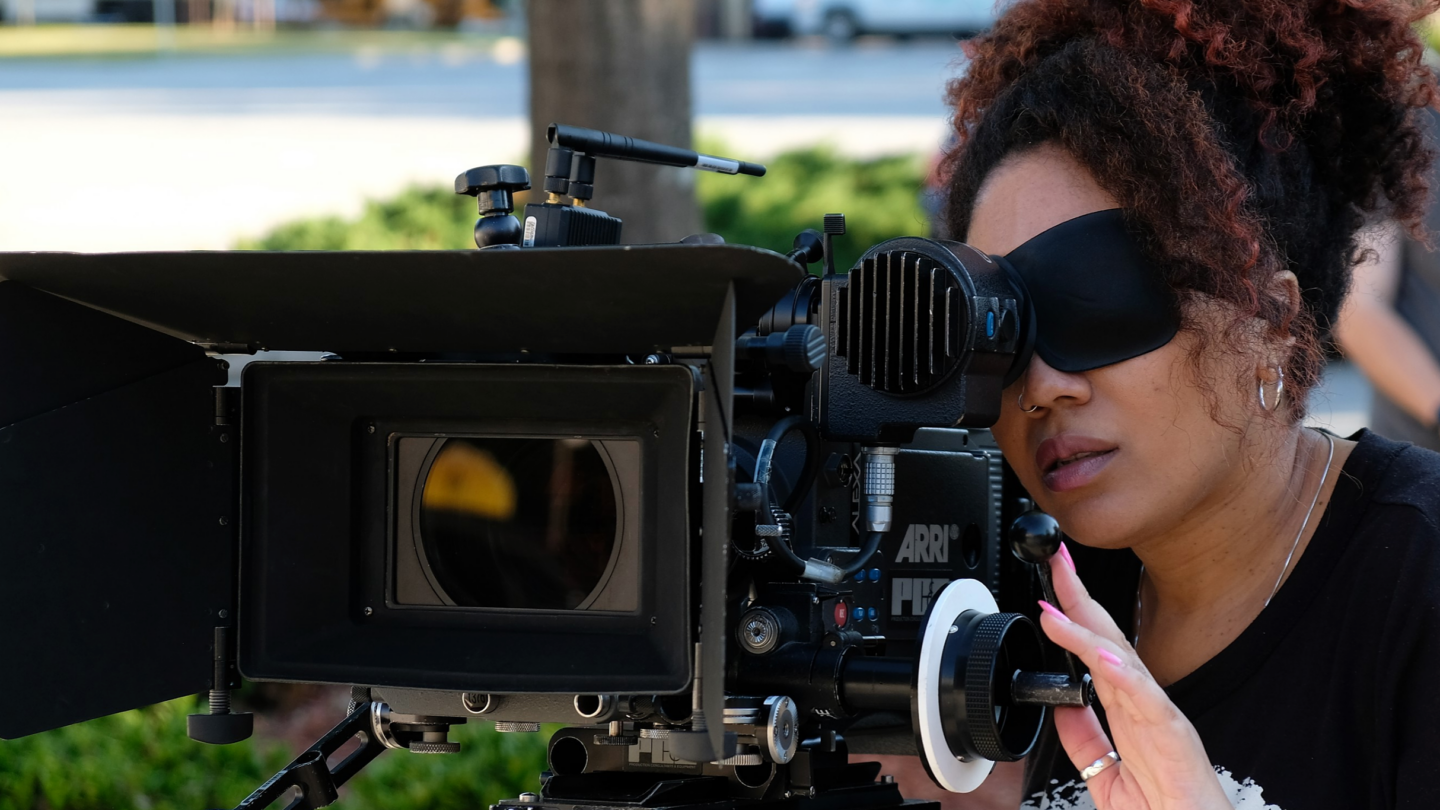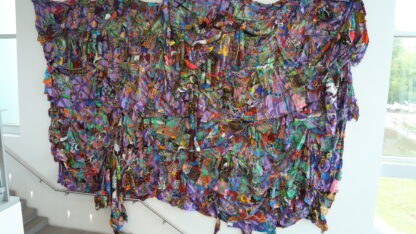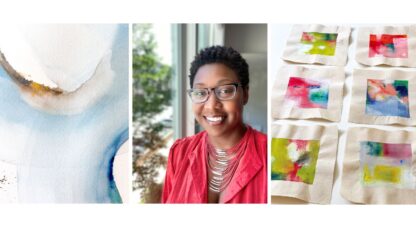'Film Crew Files': Alexxiss Jackson

Alexxiss Jackson is a film industry professional and a longtime resident of Atlanta’s Old Fourth Ward. She’s specialized as a director of photography for the last seven years, though Jackson has worked in film in various roles since 2007. “I have been interested in stories and wanting to be a storyteller since I was very, very small,” said Jackson. “I was a voracious reader when I was younger … I would write novels, and I would make my family members read them.” Jackson’s drive to capture and create visual stories remained strong and eventually led her to attend film school with the hope of becoming a music video director.
Over the years, Jackson’s projects have extended to short and feature-length films, with photography, cinematography and pre-and post-production roles. She applies her discerning eye to questions regarding a film’s visual aesthetic in pre-production. “That could be looking at photography references or music references that fit a certain mood that the director is going for, or watching a film that the director says ‘Oh, I love the vibe of this.’” Jackson might also be responsible for sourcing and testing lenses and filters that will determine a film’s look.
“I don’t really have a normal day per se, and I think that that’s one of the things that I love the most about my career,” said Jackson. She described long hours on location trips across the United States or working in-studio sets in LA and New York, constantly adapting her skills and established treatments for various scenarios.
Jackson explained, “I often say that I feel that being a director of photography is sort of a marriage of the technical and the creative, or using the technical knowledge that you have about lighting, about camera bodies, about all of the technical aspects of filmmaking, and … using that knowledge to ultimately tell a story.” Though she still loves books and other storytelling mediums, Jackson attests that there’s a particular satisfaction in creating narrative and sculpting a viewer’s attention with tricks of light and focus.
“Watching other people watch it after it’s finished, and seeing them laugh at a moment, or gasp at a moment, or tear up during a moment — it shows that we view those storytelling devices effectively,” said Jackson.
Like many film industry professionals, Jackson attests to the job’s demands and the major commitment required of her. She echoed a common sentiment in the field: stress around maintaining family connections, friendships and love relationships outside work. “Our inability to tell you when we’re available for something, or what time we’re gonna get off, is not in any way indicative of how we feel about the relationship or how important you are to us,” Jackson said. “It’s just, sometimes our schedule is so crazy that we’re just sort of swept up in the tide of it, and we don’t know exactly when we’re gonna land on shore.”
Nevertheless, Jackson loves what she does. “I love working on stories that I feel like are really powerful or inspire difficult conversations because I feel like that’s also a really important part of art and of media.” Outside her work in film, Jackson is an adjunct professor at Spelman College teaching cinematography. She expressed how valuable she considers her opportunity to bring more young Black women filmmakers into the field in Atlanta.








